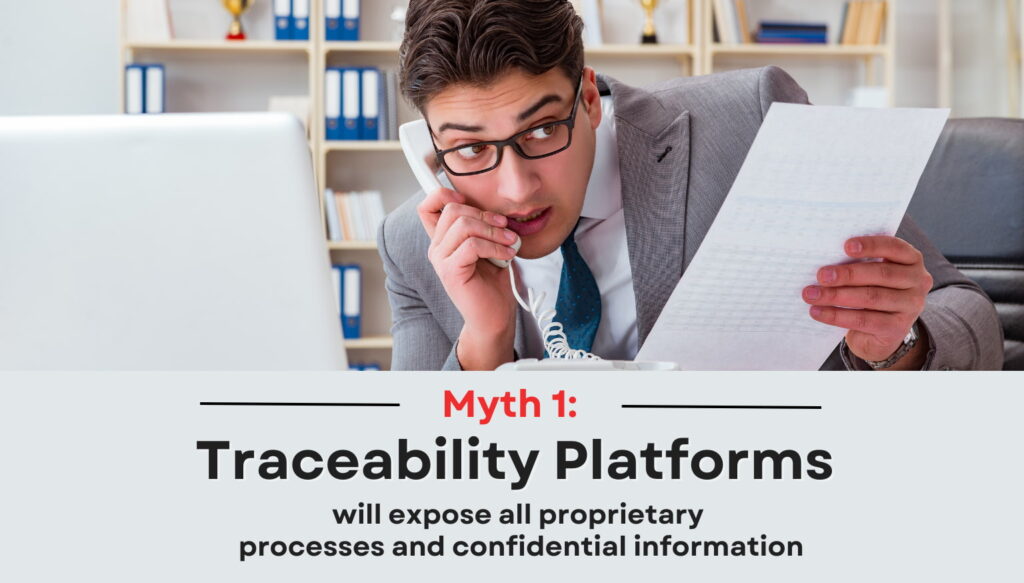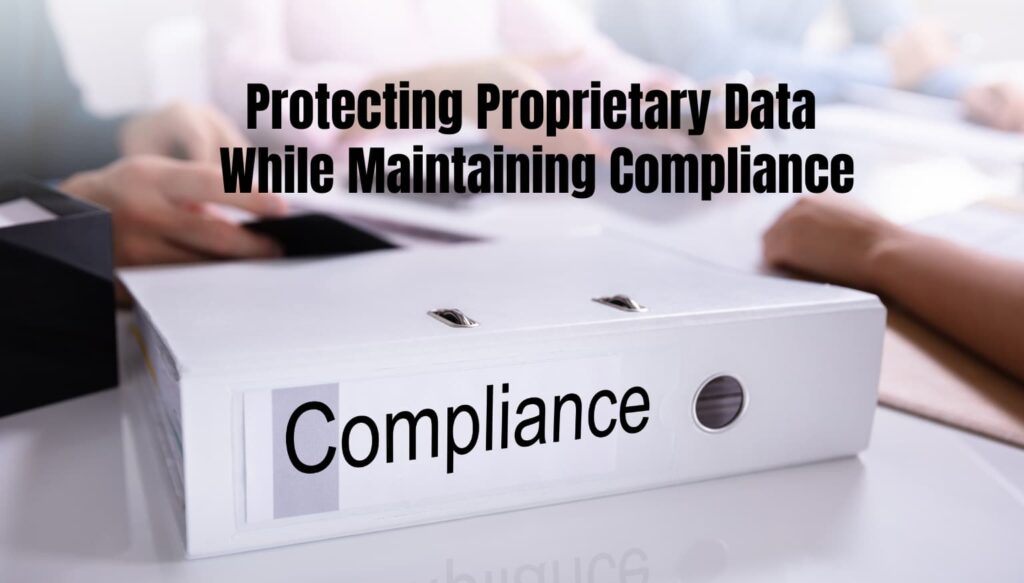In the food and beverage (F&B) industry, traceability platforms are increasingly seen as a vital tool for maintaining food safety, regulatory compliance, and fostering consumer trust. However, a common misconception continues to linger: adopting traceability platforms will lead to the exposure of confidential details about how food is processed, who packs private-label products, what prices are paid for items, and other proprietary information.
Understandably, many companies fear that these platforms will compromise their competitive advantage by revealing sensitive trade secrets. While this concern is to be expected, it’s important to know that transparency doesn’t necessarily mean overexposure but a very controlled access to information.
Companies need solutions that balance transparency and data privacy, allowing businesses to retain control over what they share and what they choose to keep private. This balance is particularly important for adhering to regulations like FSMA Section 204, which demands traceability without requiring businesses to disclose confidential information.
Debunking Myths About Traceability Platforms

This is the most widespread concern among food manufacturers and processors, especially those handling private-label products. Companies fear traceability platforms will share their secret recipes, production methods, or ingredient sources with competitors and consumers.
While this fear is understandable, it’s based on a misunderstanding of how traceability systems actually work.
Fact: Traceability platforms like Farm To Plate do not require you to disclose trade secrets or proprietary information. Instead, they allow businesses to choose what data is shared (by applying “permissioned access”), particularly when it comes to complying with regulations like FSMA. It offers granular control over data sharing. This means you can provide essential compliance data to regulatory bodies while keeping proprietary information confidential..

Another concern is that transparency could erode a company’s unique selling proposition (USP). If everyone knows exactly how a product is made or where ingredients come from, how can a brand differentiate itself?
Fact: Customers may want to know where their food comes from, but they don’t need to know every detail about your production process. Using traceability solutions like Farm To Plate, a business can provide transparency around ingredient sourcing and supply chain management without exposing specific techniques or proprietary methods. This way, you build consumer trust without compromising your competitive edge..

Some companies worry that adopting a traceability platform will make all their supply chain information public. This concern stems from the idea that regulators, competitors, and consumers will have unlimited access to sensitive business data.
Fact: Traceability platforms like Farm To Plate are built on blockchain technology, which offers immutable yet selectively transparent data-sharing capabilities. While data cannot be tampered with, it is only shared with authorized parties. You remain in control of who sees what. Many traceability platforms allow businesses to manage data governance effectively, sharing only the information necessary for regulatory compliance or consumer-facing transparency..
Why Total Transparency Isn’t Necessary for FSMA Compliance
Companies are under increasing pressure to comply with the FDA FSMA Section 204(d), which mandates the implementation of traceability systems for high-risk foods. However, compliance doesn’t require full disclosure of proprietary information.

FSMA Section 204(d) on the traceability of food products through the supply chain specifically requires companies to maintain records that can trace high-risk foods from farm to fork. While this requires companies to disclose certain aspects of their supply chain, such as where products are sourced and how they are processed, it does not require them to reveal every step of their production process.
Farm To Plate allows companies to comply with FSMA by providing selective transparency, meaning you only disclose the information required for compliance. Sensitive or proprietary information can remain confidential, so companies don’t have to fear losing their competitive advantage.
How Farm To Plate Offers Both Transparency and Privacy
Farm To Plate offers a unique solution to this problem: selective transparency. Blockchain technology is known for its immutability—once data is added, it can’t be changed, but it also allows control over who has access to that data.

With Farm To Plate, businesses can decide which information can be shared with consumers, regulators, or other partners and which information remains private. It is particularly important for companies that produce private-label products or use proprietary methods they don’t want to disclose.
Consider a seafood importer handling private-label products. The importer needs to comply with FSMA Section 204(d) but is concerned about revealing supply chain details that competitors could exploit. Using Farm To Plate’s platform, the importer can share necessary compliance data with the FDA while protecting sensitive information like supplier agreements or processing techniques.
Farm To Plate’s user-friendly interface and multi-lingual support make it easier for companies to adopt the system, even when dealing with international suppliers. This level of selective transparency allows the importer to maintain market differentiation while building consumer trust.

When considering a traceability platform, it’s crucial to look for one that offers:
- Selective data-sharing capabilities to maintain confidentiality.
- Blockchain-based security to ensure data integrity.
- Real-time traceability is needed to meet consumer and regulatory demands.
- Customizable features that allow businesses to decide what information to share and with whom.
Farm To Plate’s solution addresses these needs and offers a competitive edge by providing businesses the flexibility they need to navigate the complex world of food traceability.
Conclusion
Traceability is more than compliance—it’s about building consumer trust and ensuring food safety. However, it doesn’t have to come at the expense of your trade secrets or competitive advantage.
With solutions like Farm To Plate, companies can achieve transparency and privacy, ensuring they remain compliant while protecting their proprietary information. Don’t let fear of overexposure keep your business from embracing the future of food traceability.
Learn how Farm To Plate can help your business maintain compliance without compromising your competitive advantage.
Namrata Anand, Senior Technical Content Writer at Paramount Software Solutions & farmtoplate.io
